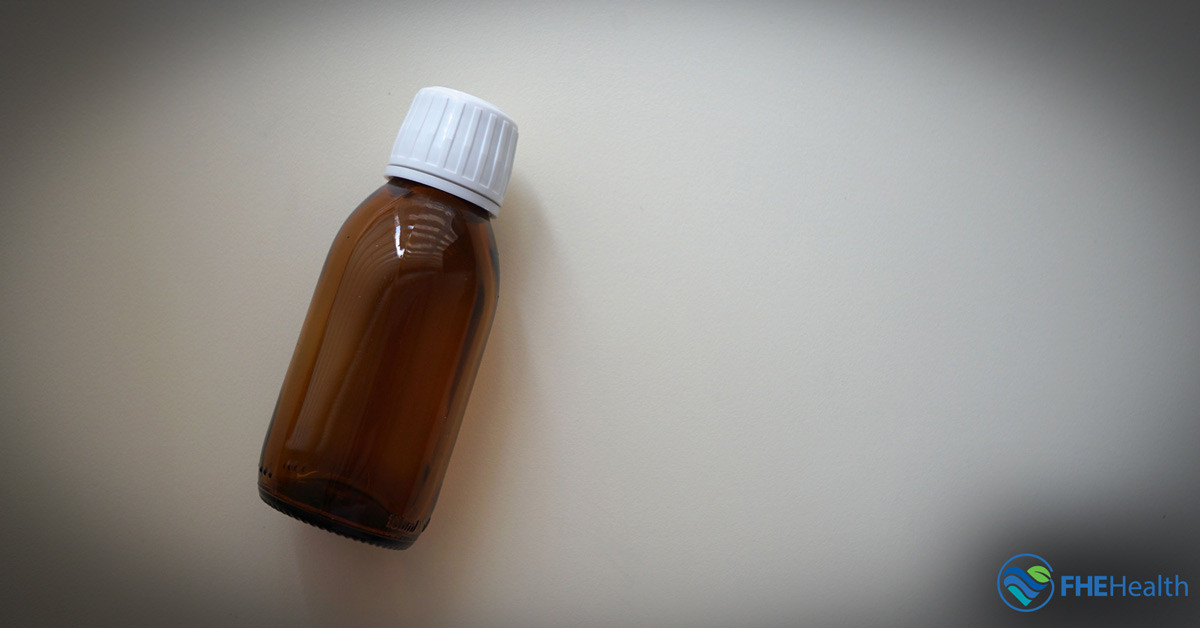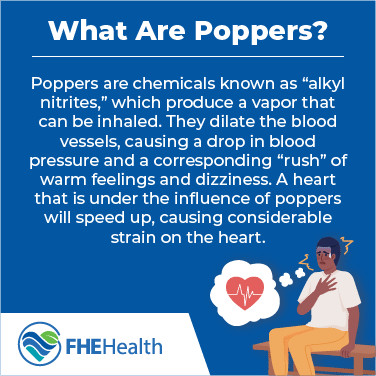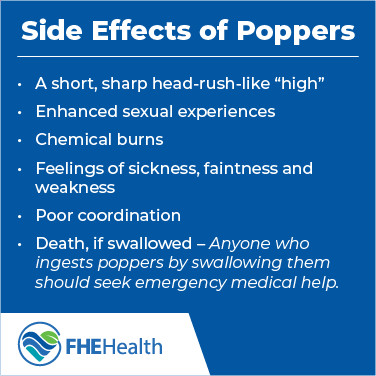Poppers, often associated with recreational drug use, especially within the LGBTQ+ community, are not as harmless as they might seem. While the internet may buzz with discussions about where to buy them, it’s crucial to understand what poppers are, their intended use, and the significant health risks they pose before even considering a purchase.
 What are poppers
What are poppers
This article delves into the reality of poppers, exploring their chemical composition, effects, dangers, and why seeking them out might be a sign of deeper issues. Before you search for “Where Can I Purchase Poppers,” arm yourself with facts to make informed decisions about your health and well-being.
What Exactly Are Poppers?
Poppers are essentially drugs that fall under the chemical category of “alkyl nitrites.” These chemicals, packaged in small bottles and sold under various brand names like “Jungle Juice,” “Liquid Gold,” or “Rush,” are inhaled to produce a quick but short-lived high. The active ingredients in poppers cause blood vessels to dilate rapidly. This vasodilation leads to a sudden drop in blood pressure, resulting in a warm, dizzy, and euphoric sensation, somewhat similar to the initial effects of alcohol. Paradoxically, while blood pressure decreases, the heart rate increases, placing a strain on the cardiovascular system.
Historically, nitrites like amyl nitrite were used medically to treat angina, chest pain caused by insufficient blood flow to the heart. These medicinal nitrites were packaged in glass ampoules that were “popped” open to release the vapors for inhalation, hence the street name “poppers.”
Why Do People Use Poppers and What Are the Real Dangers?
 What are Poppers – alkyl nitrites
What are Poppers – alkyl nitrites
Today, the primary use of poppers is often linked to sexual activity, particularly to enhance gay sex. The muscle-relaxing properties of alkyl nitrites, due to vasodilation and lowered blood pressure, are reported to relax smooth muscles, including those in the anus. Users claim this makes anal sex more comfortable and pleasurable. Additionally, poppers are believed to intensify sexual sensations and orgasms.
However, relying on a potentially harmful substance to enhance sexual experiences raises serious concerns. The perceived benefits often overshadow the significant health risks associated with popper use. While users may seek them out to improve sexual encounters, it’s vital to understand the underlying reasons for this desire and the potential for addiction and health complications.
The Connection Between Poppers and Sex Addiction
The desire to use poppers to enhance sexual pleasure might point to a more profound issue: sex addiction. Research published in the Archives of Sexual Behavior in August 2010 highlighted a strong link between engaging in sex under the influence of club drugs like poppers and sex addiction. This correlation is particularly pronounced among men who have sex with men, a group that experiences higher rates of sex addiction compared to heterosexual men.
This suggests that popper use, despite its known dangers, could be a coping mechanism for individuals struggling with sex addiction. The good news is that sex addiction, like other behavioral addictions, is treatable. Recognizing popper use as a potential symptom of sex addiction is the first step towards seeking effective treatment and recovery.
Mental Health Issues and Popper Use
Beyond sex addiction, popper use can also be a form of self-medication for underlying mental health conditions. Studies suggest a connection between popper use and various mental health disorders, including:
- Mood disorders such as depression and bipolar disorder
- Anxiety disorders, especially social anxiety
- Attention-deficit/hyperactivity disorder (ADHD) originating in childhood
- Obsessive-compulsive disorder (OCD)
It’s not uncommon for these mental health conditions to coexist with sex addiction, creating a complex situation where popper use becomes intertwined with both behavioral and mental health challenges.
Seeking Help for Popper Use and Underlying Issues
If you suspect that you or someone you know is using poppers due to sex addiction or mental health issues, it’s essential to seek professional help. Dual diagnosis treatment, which addresses both substance use and co-occurring mental health disorders, offers a path to recovery. Integrated treatment approaches provide comprehensive care to manage addiction and improve overall well-being. Recognizing the signs of problematic popper use and seeking timely intervention can lead to a healthier and happier life.
How Are Poppers Typically Used?
Poppers are typically inhaled directly from the bottle. Some users may soak a cigarette in the liquid and inhale the fumes through the cigarette, though this method carries additional risks.
The effects of poppers are almost immediate but very short-lived, usually fading within a few minutes. This rapid onset and short duration can lead to repeated use in a short period, increasing the potential for harm. Furthermore, the flammable nature of poppers and the altered state of mind they induce have led to accidents, including burns from misusing cigarettes soaked in poppers.
The Variety of Harmful Chemicals in Poppers
Poppers are not a single, uniform substance. They are composed of different types of alkyl nitrites, each with its own set of dangers. Amyl nitrite was the first type used recreationally in the 1960s. As regulations around amyl nitrite became stricter, other alkyl nitrites emerged, including amyl nitrate, butyl nitrite, isobutyl nitrite, and isopropyl nitrite.
Each of these chemicals carries significant health risks, ranging from harmful to potentially deadly. Their side effects and long-term complications are alarming:
- Amyl nitrate: Linked to memory loss, delirium, hallucinations, paranoia, and even death at high doses. Long-term use can cause brain damage, heart disease, liver and kidney failure, permanent hearing loss, slurred speech, and tremors.
- Amyl nitrite: Presents a risk of fatal asphyxiation in the short term and can lead to chronic heart and blood vessel problems with prolonged use.
- Butyl nitrite: Extended use can severely damage vital organs, including the heart, brain, blood vessels, muscles, liver, and kidneys. It also carries a risk of sudden death.
- Isobutyl nitrite: A 2016 study on mice indicated neurotoxicity, impairing motor skills, memory, and learning abilities.
- Isopropyl nitrite: The British Medical Journal has warned about visual disturbances, blurred vision, blind spots, and retinal damage associated with isopropyl nitrite. These visual impairments may be permanent even after stopping use.
Understanding the Side Effects of Poppers
Poppers can cause a wide array of adverse side effects, including:
 Side Effects of Poppers
Side Effects of Poppers
- A brief “rush” or high: This head-rush sensation is the primary desired effect, lasting only a few minutes.
- Enhanced sexual experiences: Users report intensified orgasms, prolonged orgasmic sensations, potentially stronger erections (though some experience erectile dysfunction after use), and relaxation of anal sphincter muscles to facilitate anal sex.
- Chemical burns: Skin irritation and rashes around the nose and mouth, as well as irritation of the nasal passages and throat, are common due to direct chemical contact.
- Physical discomfort: Feelings of nausea, faintness, and general weakness are frequently reported.
- Impaired coordination: Loss of coordination and motor control can occur.
- Lethal if swallowed: Ingesting poppers can cause severe burns to the mouth and throat, trigger vomiting, and lead to fatal poisoning. Immediate medical attention is crucial if poppers are swallowed.
Popper use is particularly dangerous for individuals with pre-existing health conditions such as heart problems, anemia, or glaucoma. Death has been reported in individuals with heart conditions who used poppers.
Key Dangers of Poppers You Need to Know
Here’s a summary of the critical dangers associated with popper use:
- Dangerous drop in blood pressure: Poppers can cause blood pressure to plummet to dangerously low levels, risking organ damage and collapse.
- Oxygen deprivation and blood cell damage: Poppers can damage red blood cells and reduce oxygen supply to vital organs, potentially leading to death.
- Risk of unconsciousness and choking: Loss of consciousness and subsequent choking on vomit is a serious risk, especially when combined with alcohol.
- Increased risk of STIs: Popper use is linked to risky sexual behaviors, increasing the likelihood of contracting sexually transmitted infections.
- Burns and flammability: Poppers can cause skin burns on contact and are highly flammable, posing fire hazards.
- Other immediate side effects: Nausea, headaches, and disorientation are common and unpleasant side effects.
“Sudden sniffing death syndrome,” caused by an abnormal heart rhythm, has been reported in popper users. Furthermore, numerous cases of both temporary and permanent vision loss have been linked to popper use in recent years.
Combining poppers with alcohol significantly amplifies the risk of oxygen deprivation, unconsciousness, and death. While poppers may seem readily available and legal in some contexts, their dangers are undeniable and should not be underestimated.
Potential for Brain Damage from Popper Use
Perhaps the most alarming potential consequence of popper use is brain damage. Research from the University of Maryland’s Center for Substance Abuse Research indicates that inhalants like poppers can damage critical brain regions, including the cerebral cortex and cerebellum. This damage can manifest as personality changes, memory loss, hallucinations, impaired coordination, and slurred speech.
The 2016 study on isobutyl nitrite in mice corroborated these findings, demonstrating impaired motor coordination, memory, and cognitive function in subjects exposed to the chemical.
Are Poppers Addictive?
While poppers are not considered chemically addictive in the same way as substances like opioids or nicotine, they can be behaviorally addictive. Their association with enhanced sexual pleasure, particularly when linked to pre-existing process addictions or mental health disorders, can create a cycle of dependence. The psychological craving and reliance on poppers to achieve desired sexual experiences can lead to compulsive use despite awareness of the risks.
Take Action for Your Health
Regardless of the perceived reasons for using poppers, the inherent dangers of these chemicals are undeniable. If you or someone you know is using poppers, it’s crucial to recognize this as a potential sign of a more significant issue, such as sex addiction or an underlying mental health condition.
Seeking guidance from a behavioral health professional who specializes in both substance use and behavioral addictions is a vital step. They can provide support, assess the situation, and recommend appropriate interventions and treatment options.
No fleeting, chemically induced experience is worth jeopardizing your long-term health and well-being. Prioritize your health and seek help if popper use is a concern. Remember, there are healthier and safer ways to experience pleasure and manage underlying challenges.
